Filter by
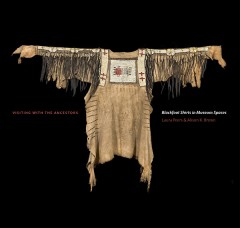
Visiting With the Ancestors Blackfoot Shirts in Museum Spaces
In 2010, five magnificent Blackfoot shirts, now owned by the University of Oxford’s Pitt Rivers Museum, were brought to Alberta to be exhibited at the Glenbow Museum, in Calgary, and the Galt Museum, in Lethbridge. The shirts had not returned to Blackfoot territory since 1841, when officers of the Hudson’s Bay Company acquired them. The shirts were later transported to England, where they h…
- Edition
- -
- ISBN/ISSN
- 9781771990370.01
- Collation
- -
- Series Title
- -
- Call Number
- 10.5 x 10, 232 pages
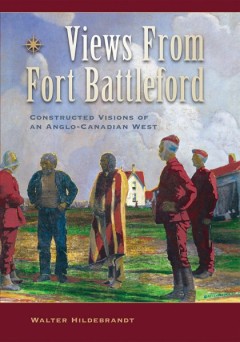
Views From Fort Battleford Constructed Visions of an Anglo-Canadian West
The Myth of the Mounties as neutral arbiters between Aboriginal peoples and incoming settlers remains a cornerstone of the western Canadian narrative of a peaceful frontier experience that differs dramatically from its American equivalent. Walter Hildebrandt eviscerates this myth, placing the NWMP and early settlement in an international framework of imperialist plunder and the imposition of co…
- Edition
- -
- ISBN/ISSN
- 9781897425459
- Collation
- -
- Series Title
- -
- Call Number
- -

Unsettling Colonialism in the Canadian Criminal Justice System
Canada’s criminal justice system reinforces dominant relations of power and further entrenches the country in its colonial past. Through the mechanisms of surveillance, segregation, and containment, the criminal justice system ensures that Indigenous peoples remain in a state of economic deprivation, social isolation, and political subjection. By examining the ways in which the Canadian justi…
- Edition
- Vicki Chartrand and Josephine Savarese
- ISBN/ISSN
- 9781771993685
- Collation
- -
- Series Title
- -
- Call Number
- 6 x 9, 340 pages
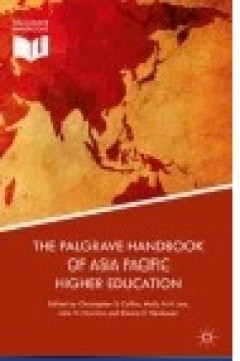
The Palgrave Handbook of Asia Pacific Higher Education
This volume seeks to identify and explore the forces affecting higher education in the Asia Pacific region today. It includes a set of conceptually-rich organizing chapters followed by detailed country-specific studies that detail both the underlying dynamics of these forces and the manner in which they have affected specific countries. In this way, the chapters touch on the complex demographic…
- Edition
- -
- ISBN/ISSN
- 978-1-137-48739-1
- Collation
- XXX, 691
- Series Title
- -
- Call Number
- -

Memory and Landscape Indigenous Responses to a Changing North
The North is changing at an unprecedented rate as industrial development and the climate crisis disrupt not only the environment but also long-standing relationships to the land and traditional means of livelihood. Memory and Landscape: Indigenous Responses to a Changing North explores the ways in which Indigenous peoples in the Arctic have adapted to challenging circumstances, including past c…
- Edition
- -
- ISBN/ISSN
- 9781771993159.01
- Collation
- -
- Series Title
- -
- Call Number
- 9 x 10, 448 pages
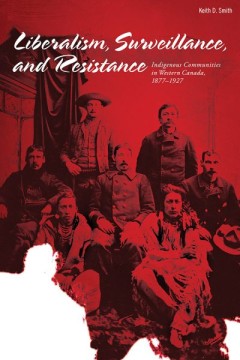
Liberalism, Surveillance, and Resistance Indigenous Communities in Western C…
Canada is regularly presented as a country where liberalism has ensured freedom and equality for all. Yet with the expansion of settlers into the First Nations territories that became southern Alberta and BC, liberalism proved to be an exclusionary rather than inclusionary force. Between 1877 and 1927, government officials, police officers, church representatives, ordinary settlers, and many ot…
- Edition
- -
- ISBN/ISSN
- 9781897425398.01
- Collation
- -
- Series Title
- The West Unbound: Social and Cultural Studies
- Call Number
- 334 pages
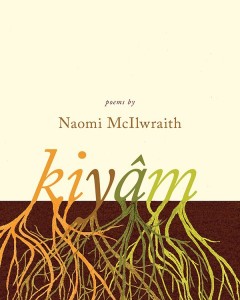
kiyâm
Through poems that move between the two languages, McIlwraith explores the beauty of the intersection between nêhiyawêwin, the Plains Cree language, and English, âkayâsîmowin. Written to honour her father’s facility in nêhiyawêwin and her mother’s beauty and generosity as an inheritor of Cree, Ojibwe, Scottish, and English, kiyâm articulates a powerful yearning for family, history, …
- Edition
- -
- ISBN/ISSN
- 9781926836690.01
- Collation
- -
- Series Title
- Mingling Voices
- Call Number
- 178 pages

Indigiqueerness A Conversation about Storytelling
Evolving from a conversation between Joshua Whitehead and Angie Abdou, Indigiqueerness is part dialogue, part collage, and part memoir. Beginning with memories of his childhood poetry and prose and travelling through the library of his life, Whitehead contemplates the role of theory, Indigenous language, queerness, and fantastical worlds in all his artistic pursuits. This volume is imbued with …
- Edition
- -
- ISBN/ISSN
- 9781771993913.01
- Collation
- -
- Series Title
- -
- Call Number
- 5.5 x 7, 96 pages

In/visible Sight The Mixed-Descent Families of Southern New Zealan
Angela Wanhalla begins her story in Maitapapa, Taieri, New Zealand, the mixed-descent community where her great-grandparents, John Brown and Mabel Smith, were born. As In/visible Sight takes shape, a community emerges from the records, re-casting history and identity in the present. Drawing on the experiences of mixed-Maori/White families, Wanhalla examines the early history of southern New Zea…
- Edition
- -
- ISBN/ISSN
- 9781897425879
- Collation
- -
- Series Title
- -
- Call Number
- -
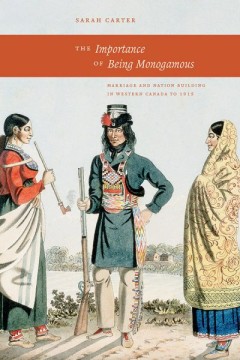
The Importance of Being Monogamous Marriage and Nation Building in Western C…
Sarah Carter reveals the pioneering efforts of the government, legal, and religious authorities to impose the “one man, one woman” model of marriage upon Mormons and Aboriginal people in Western Canada. This lucidly written, richly researched book revises what we know about marriage and the gendered politics of late 19th century reform, shifts our understanding of Aboriginal history during …
- Edition
- -
- ISBN/ISSN
- 9780888644909.01
- Collation
- -
- Series Title
- -
- Call Number
- 399 pages
 Computer Science, Information & General Works
Computer Science, Information & General Works  Philosophy & Psychology
Philosophy & Psychology  Religion
Religion  Social Sciences
Social Sciences  Language
Language  Pure Science
Pure Science  Applied Sciences
Applied Sciences  Art & Recreation
Art & Recreation  Literature
Literature  History & Geography
History & Geography